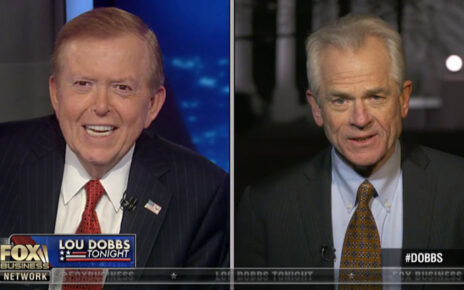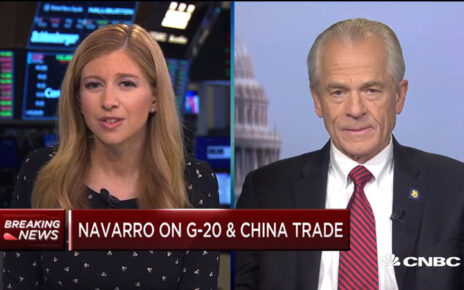September 24, 2018 – CNBC, Closing Bell
KEY POINTS
- “The challenge is they’ve engaged in so many egregious practices that it’s far more difficult to make a deal with China than it is with Mexico,” Peter Navarro, director of the National Trade Council at the White House, says.
- The U.S. and Mexico made a preliminary deal on trade in August, but agreements with Canada and China have yet to be smoothed out.
- The latest round of tariffs between the U.S. and China went into effect Monday.
Establishing a new trade deal with China could be significantly tougher than it was with Mexico, according to one of President Trump’s top advisors.
“The challenge is, they’ve engaged in so many egregious practices that it’s far more difficult to make a deal with China than it would be with Mexico,” Peter Navarro, director of the National Trade Council at the White House, said on CNBC’s “Closing Bell” Monda
The former economics professor and author of “The Coming China Wars,” has been notoriously hawkish on trade. Navarro said the goal now is structural realignment where all countries the U.S. trades with engage in “free, fair, and reciprocal” agreements.
Stocks were under pressure Monday after the cancellation of U.S.-China trade talks. The Wall Street Journal first reported late last week that China had cancelled talks with the U.S. on trade as both countries impose tariffs on billions of dollars worth of their goods. Representatives were scheduled to meet in an effort to smooth ongoing tensions, but according to the Journal, China rescinded its proposal to send delegations to Washington. Other news outlets matched the Journal’s reporting throughout the weekend.
Navarro pushed back on the reports and said to be cautious when taking “cues from what’s reported in the press.”
“Our position is really simple: We’re happy to listen to the Chinese, we want to talk and the Chinese are well aware of the issues we have raised,” Navarro said.
The latest round of tariffs between the U.S. and China went into effect Monday. Washington levied tariffs of 10 percent on $200 billion of Chinese products that include furniture and appliances, and the rate will increase to 25 percent by the end of the year. Chinese President Xi Jinping’s government said it would impose taxes on 5,207 U.S. imports, worth about $60 billion, in response.
A preliminary deal to update the 25-year old North American Free Trade Agreement, was reached in August between the U.S. and Mexico, but still does not include Canada. Negotiations with the U.S.’s northern neighbor have been tougher because of disagreements over agriculture and dairy products, which are still believed to be unresolved. The White House has said it is prepared to move ahead on a deal without Canada.



